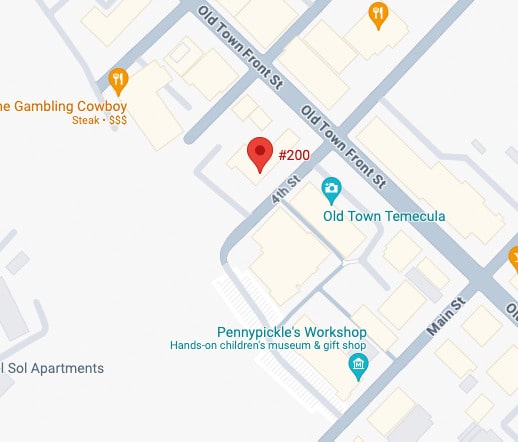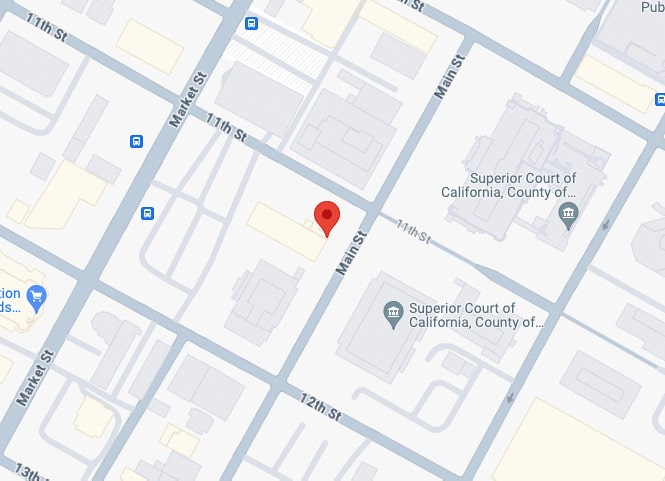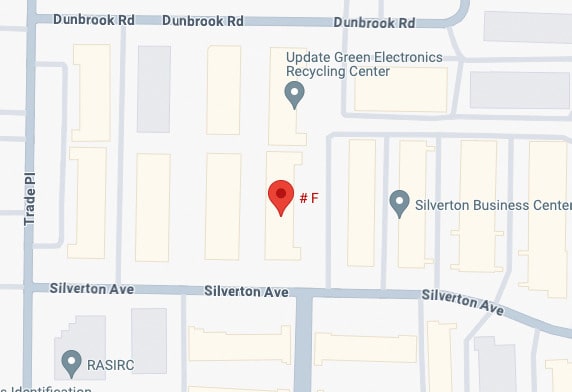When a loved one lands in jail, volunteering as a co-signer of a bail bond may feel like the next best step, but it is a responsibility not to be taken lightly. It is not just about helping secure their release. You are taking on a legal and financial obligation that requires trust, responsibility, and caution.
By signing the bail bond, you become responsible for ensuring the defendant appears in court and complies with all court orders. This decision requires balancing compassion with prudence, as a defendant skipping bail can impact your finances and peace of mind.
It is important to know what it means to be a co-signer before you sign the bail bond. It is about trusting, defending justice, and preserving your stability in helping a person endure a difficult period. Below is a look at some of your responsibilities when you become a cosigner.
You Are Legally Responsible for the Full Bail Amount
By agreeing to co-sign a bail bond, you are signing a contract that makes you legally bound, leaving a monumental financial burden on your shoulders. This is one of the most significant responsibilities you may assume. Your signature is not just a statement of trust in someone you love. It is a legal assurance to the bail bond company to pay the non-refundable premium and commit to helping the defendant honor:
-
The bail terms
-
The bail bond agreement
You should go through and understand the terms properly because a violation of the terms can have disastrous financial consequences. For example, if the court sets a defendant’s bail at $100,000, the bail bond company will typically charge a 10% premium, or $10,000. By co-signing, you will be contractually bound to pay this $10,000 premium to the bail bondsman. However, that is not all you are financially liable for.
If the defendant does not attend court on their court date, the court will forfeit the defendant’s bond. Once the bail is forfeited, the bail bonds company will be expected to pay the full amount of the bond, which is $100,000, to the court. This is when your legal responsibility to the bail company comes into effect. Instead of the original $10,000 premium, you will now be liable for the full $100,000.
This significant financial risk is why bail bond companies evaluate the financial stability of potential cosigners. They need assurance that you have sufficient assets or income to cover this debt in a worst-case scenario. If the defendant absconds or "skips bail," the bail bond company will take quick and decisive legal action to recoup its loss. The company is legally entitled to sue you to enforce the co-signer agreement. They can take away your assets via a court-ordered judgment, including bank accounts, real estate, and cars. They can also pursue wage garnishment, which automatically diverts a percentage of your paycheck to the bail bond company until the entire sum is repaid.
It is important to realize that a bail bond is not a loan you can default on with impunity. This uncompromising legal agreement leaves you the first financial guarantor of the defendant's actions. It is your responsibility to guarantee the defendant's attendance in court, and if the defendant skips court, you will bear the financial consequences. You should consider whether you can afford to lose a significant portion of your net worth, potentially all of it, if the defendant fails to uphold their end of the bargain. This risk cannot be overstated and should be the central point of your consideration.
Paying the Non-Refundable Premium and Pledging of Your Assets as Security
In addition to the general legal security, the co-signer must also fulfill the immediate financial requirements to secure the defendant's release. These preliminary obligations are tangible and come with their risks, and are the initial set of obligations in the bail bond process.
To begin with, you pay the non-refundable premium. This is the amount charged by the bail bond company to the defendant as the cost of their service of ensuring that the defendant appears before the court. This amount is usually 10% of the full bail amount. This amount is not a deposit refunded when the case is over.
It is the bail agent's earned fee. Whether the defendant is declared innocent, the charges are dismissed, or the case is thrown out, that premium is forever gone. This payment will cover the administrative costs of the bail bond company, legal fees, and the risk they take on your behalf. This fee will be your first concrete financial obligation to secure the defendant's release.
Furthermore, if the bail bondsman requires it, you are duty-bound to put your assets up as collateral. In most instances, the bail bond company will need more than a signature, particularly with high-dollar bonds. They will require collateral, which can be auctioned to recover the entire bail amount if the defendant skips bail. As the co-signer, you will be required to provide these assets. This may be:
-
A mortgage on your house
-
The title to your car
-
Money
-
Precious jewelry
This collateral is meant to offer the bail bond company a direct and quick avenue to financial recovery should there be forfeiture of bail.
When you provide an asset, like your home, the bail bond company will put a lien on the property. This means that when the defendant fails to appear before the court, the firm can foreclose on your house and sell it to pay the amount lost as a bond. This is no idle threat. The bail bond company will use this right to safeguard its financial interest.
You must know all the consequences of this lien and the risk of losing your most valuable assets. You must also be completely transparent with the bail bondsman regarding your assets’ value and be ready to have them legally and physically confiscated should the defendant neglect their court duties. This action of pledging collateral locks your financial promise and directly exposes your personal property.
Actively Ensuring the Defendant Appears at All Court Dates
The role of a bail bond co-signer extends far beyond the financial commitments detailed on the contract. It involves a critical active role in making sure that the defendant does everything that he/she is supposed to do, which is attending all the individual court dates. A bail bond company expects you to be their on-the-ground partner in this process, and in case you fail to do this job, it can directly result in monetary loss.
Your duties begin with a proactive approach to the defendant's legal schedule. You should keep track of all the court dates, times, and locations. You cannot depend on a phone call or a text message from the defendant. You should have first-hand information about the court calendar and confirm the information. This means obtaining a copy of the court schedule.
Further, it is your responsibility to remind the defendant regularly. You should treat their court dates with the same seriousness as a job interview or a medical appointment. It is not so simple as a reminder. You have to be persistent and make sure they have a plan to attend. This responsibility can also include organizing transport so that they can always depend on it to reach the court. A flat tire, missing a bus, or a car failing to start are unacceptable reasons for failing to appear. As the co-signer, it is your unspoken duty to find solutions to these issues and eliminate any impediments that may hinder the defendant's appearance.
You are supposed to be a motivator and a problem-solver. If the defendant procrastinates, makes excuses, or shows signs of non-compliance, you must overcome these challenges. The bail bond company has little direct contact with the defendant. They turn to you to be their eyes and ears. This hands-on approach is a key aspect of your non-financial responsibility and helps protect you from the severe consequences of a forfeited bond. The plain reality is that, when the defendant misses a court appearance, the financial consequences will not fall on him/her but on you. It is your responsibility to ensure that this never happens.
You Are the Bail Bond Company’s Primary Point of Contact
As a bail bond co-signer, the bail company considers you the defendant's most reliable and consistent contact person. This responsibility is one of openness, integrity, and continued communication. The bail bond company will depend on you to give valid information and to act as the primary point of contact during the period of the legal case.
This obligation begins in the first application procedure. You are responsible for presenting correct and honest information that concerns you and the defendant. This involves verifiable information about employment, residence, and contacts. Any misrepresentation of any of this information may be a violation of the co-signer agreement and may put you in legal jeopardy. If the defendant becomes unresponsive, the bail bond company must know who and where to go.
In addition to the original use, you must update the defendant's status instantly in case of any changes. If the defendant changes his/her address or phone number or acquires a new job, you must inform the bail bondsman as soon as possible. This is to ensure that the bail company can always find the defendant. Failing to provide timely updates may be considered non-cooperation and could result in the bail company revoking the bond.
Furthermore, you have to speak up about what you feel about the conduct or motive of the defendant. If you believe the defendant is a flight risk, not complying with the conditions of release, or demonstrates noncompliant behavior, you must notify the bail bondsman. It is not only an obligation to the bail company but a necessary self-defense. Reporting the flight risk as soon as possible allows the bail bond company to act before it is too late, and you can avoid the complete forfeiture of the bond, saving you the cost of a substantial financial loss. This frank and free communication is fundamental to the co-signer role and essential to your risk management.
Paying All Expenses in the Event the Defendant Jumps Bail (Forfeiture & Recovery)
When a defendant skips out on his/her court date, a legal and financial domino effect is set in motion, and you, as the co-signer, are right in the middle of it. This important role is more than being liable for the entire bail amount. The indemnity contract you signed makes you responsible for all the expenses in locating and bringing back the fugitive.
When a court issues a bench warrant to arrest the defendant because of his/her failure to appear (FTA), the bail bond will be forfeited. At this stage, the bail bond company must pay the full bond amount to the court. They prioritise seeking out and arresting the defendant to reduce their financial loss. It is here that your duty to the bail company intensifies.
It is your legal and ethical obligation to help in their search. The bail bond company will call you as soon as possible and will want you to furnish all information you have regarding the defendant's potential whereabouts, contacts, or a new phone number. Failure to provide this information violates your co-signer contract and may be considered helping them evade.
More importantly, the indemnity agreement also holds you responsible for bearing the recovery costs. This is a significant point that most co-signers do not understand. Finding a fugitive may be rather expensive and unrelated to the bail itself. This could include the fees of a bail recovery agent, commonly known as a bounty hunter.
The bail bond company contracts these workers and their charges, which may include travel expenses, boarding, and a percentage of the recovered bond, and these charges are charged to you directly. You are responsible for every dollar in the pursuit of the defendant. This also encompasses any legal expenses that the bail company incurs while enforcing the co-signer agreement.
For example, if the defendant flees to another state, you would have to pay the flight tickets, hotel charges, and other costs of the bail recovery agent, on top of their per-day or percentage commission. These expenses may soon round off to tens of thousands of dollars, directly resulting from the defendant's actions and your legal obligation.
This liability exists even when the bail bond company succeeds in apprehending the defendant. The bail bond company aims to recover its expenses and losses, and by signing the indemnity agreement, this is its insurance policy. This responsibility is critical to understand, because it is important to know that the financial risk is not limited to the bail amount, but the full and uncapped cost of a full-scale manhunt.
Knowing and Abiding by the Legally Binding Indemnity Contract
The indemnity agreement is the ultimate source of all your responsibilities as a bail bond co-signer. You sign a legally binding civil contract with the bail bond company. If you put your signature on this document, you officially declare that you have read, understood, and agreed to every term and condition set out in this document.
You must fully understand the terms of this contract before signing it. The terminology of these contracts may be complex and filled with legal terms. The bail bondsman is not required to explain every single clause in detail. You should ask questions and clarify any language you do not understand. If you are unfamiliar with a term, for example, “surety” or "indemnitor," you must request an explanation.
This is because a person ignorant of the contract's contents cannot argue ignorance as a defense to a legal action later if the defendant fails to appear and the bail is forfeited. This contract is your financial and practical commitment. It outlines your liability for the full bail amount, any recovery costs, and your obligation to provide accurate information and assistance in case of forfeiture. Your signature makes all these responsibilities enforceable in a court of law.
Find a Bail Bondsman Near Me
Being a bail bond co-signer is a profound act of trust and responsibility, balancing compassion with accountability. You are helping a loved one secure their freedom and guaranteeing that the person can comply with their legal obligations, and your financial and personal stability is at stake.
Whether it be ensuring you turn up in court or keeping the lines of communication open, you are central to navigating through the intricacies of the bail process. The commitment needs openness, caution, and a deep understanding of the risks. By stepping into the co-signer role, you will become a pillar of support if you are ready to bear the responsibility.
Are you ready to take on the co-signer's responsibility with confidence? Call Justice Bail Bonds today for professional help and counsel. Our experienced Temecula team will guide you through each step of becoming a co-signer, ensuring you understand your obligations and can make an informed decision. Contact us today at 714-541-1155.









